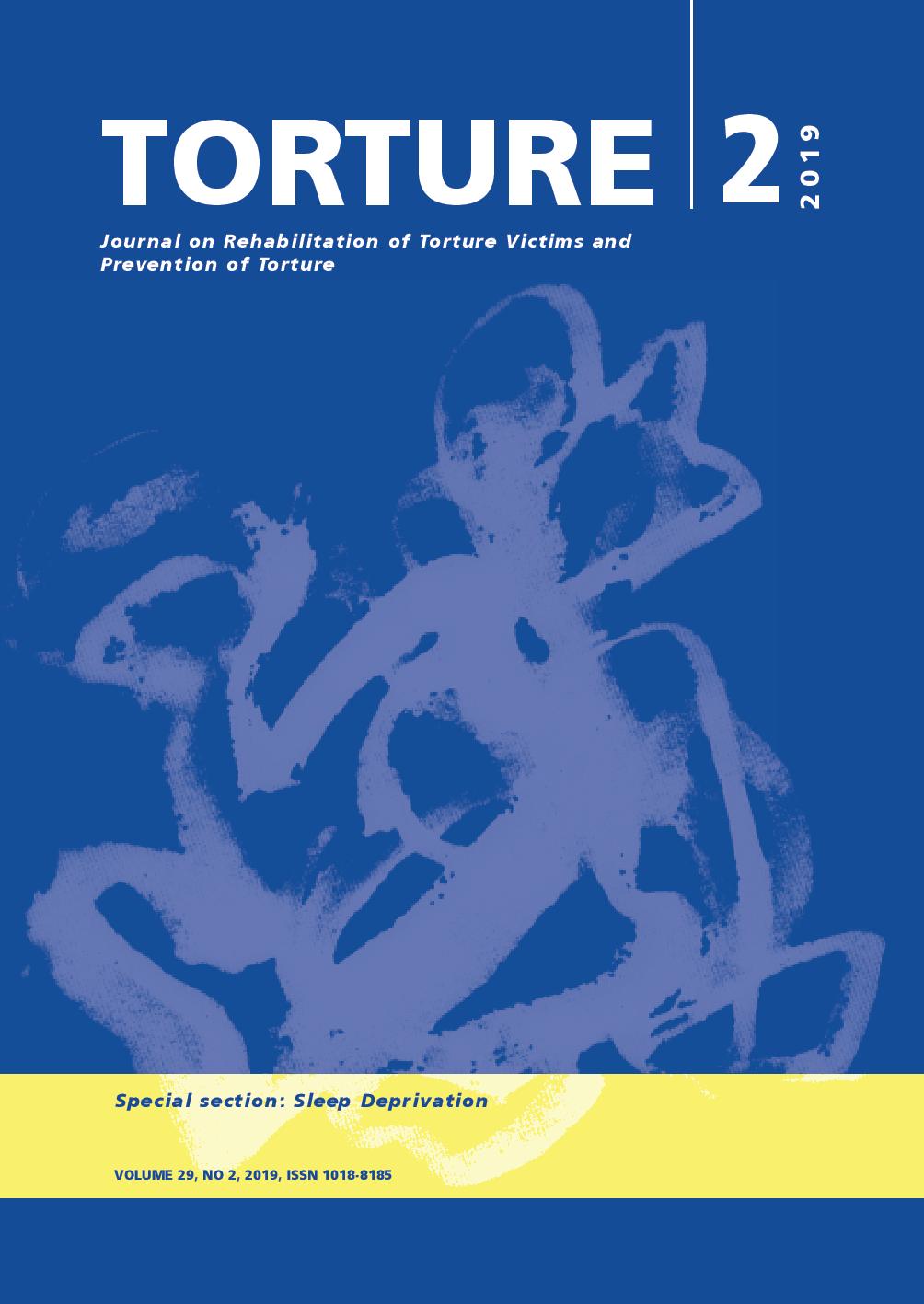Development of interdisciplinary protocols on medico-legal documentation of torture: Sleep deprivation
DOI:
https://doi.org/10.7146/torture.v29i2.115600Palabras clave:
Psychological torture, Accountability, Medico-Legal Documentation, Interdisciplinary cooperation, Sleep Deprivation, InterrogationResumen
Background: The use of psychological torture or torture methods that leave no visible marks (stealth torture) is on the increase in various contexts. However, the difficulties in the documentation of such methods should be recognized by lawyers and health professionals who may benefit from using research-based interdisciplinary instruments to improve their documentation for legal processes - in addition to the United Nations Manual on the Effective Investigation and Documentation of Torture and Other Cruel, Inhuman or Degrading
Treatment or Punishment (1999) (Istanbul Protocol). Objective: With the aim to develop additional instruments for the documentation of various psychological torture methods, this article explains the recommended methodology for such research-based interdisciplinary instruments and the process of developing the first example of this approach relating to sleep deprivation. Development and pilot testing of the Sleep Deprivation Protocol: The pilot-testing of the Protocol by lawyers in the Public Committee Against Torture in Israel (PCATI) has already yielded positive results. Conclusion: Further advanced documentation instruments, using medical evidence in non-torture contexts and legal research, should be developed to effectively identify and record other psychological torture methods.
Citas
Cakal, E. (2018). Debility, dependency and dread: On the conceptual and evidentiary dimensions of psychological torture. Torture Journal, 28(2), 15-37. doi.org/10.7146/torture.v28i2.106908
Cakal, E. (2019). Befogging Reason, Undermining Will: Understanding Sleep Deprivation as Torture and Other Ill-Treatment in International Law. Torture Journal 29(2), 11-22. doi: 10.7146/torture.v29i2.109620
PCATI (2019). Torture in Israel, Situation Report 2019. Retrieved from http://stoptorture.org.il/publications/studies/?lang=en
PCATI (2016). Shadow Report to the UN Committee against Torture towards the review of the fifth periodic report on Israel. Retrieved from https://tbinternet.ohchr.org/_layouts/15/TreatyBodyExternal/Countries.aspx?CountryCode=ISR&Lang=EN
Pérez-Sales, P. (2017). Psychological Torture: Definition, Evaluation and Measurement. London: Routledge. doi.org/10.4324/9781315616940
Rejali, D. (2007). Torture and Democracy. Princeton, NJ: Princeton University Press.
UN Office of the High Commissioner for Human Rights (OHCHR). (2004). Manual on the Effective Investigation and Documentation of Torture and Other Cruel, Inhuman or Degrading Treatment of Punishment (“Istanbul Protocol”). HR/P/PT/8/Rev. 1
Descargas
Publicado
Cómo citar
Número
Sección
Licencia
We accept that some authors (e.g. government employees in some countries) are unable to transfer copyright. The Creative Commons Licence Attribution-NonCommercial-NoDerivatives 4.0 International (CC BY-NC-ND 4.0) covers both the Torture Journal and the IRCT web site. The publisher will not put any limitation on the personal freedom of the author to use material contained in the paper in other works which may be published, provided that acknowledgement is made to the original place of publication.


